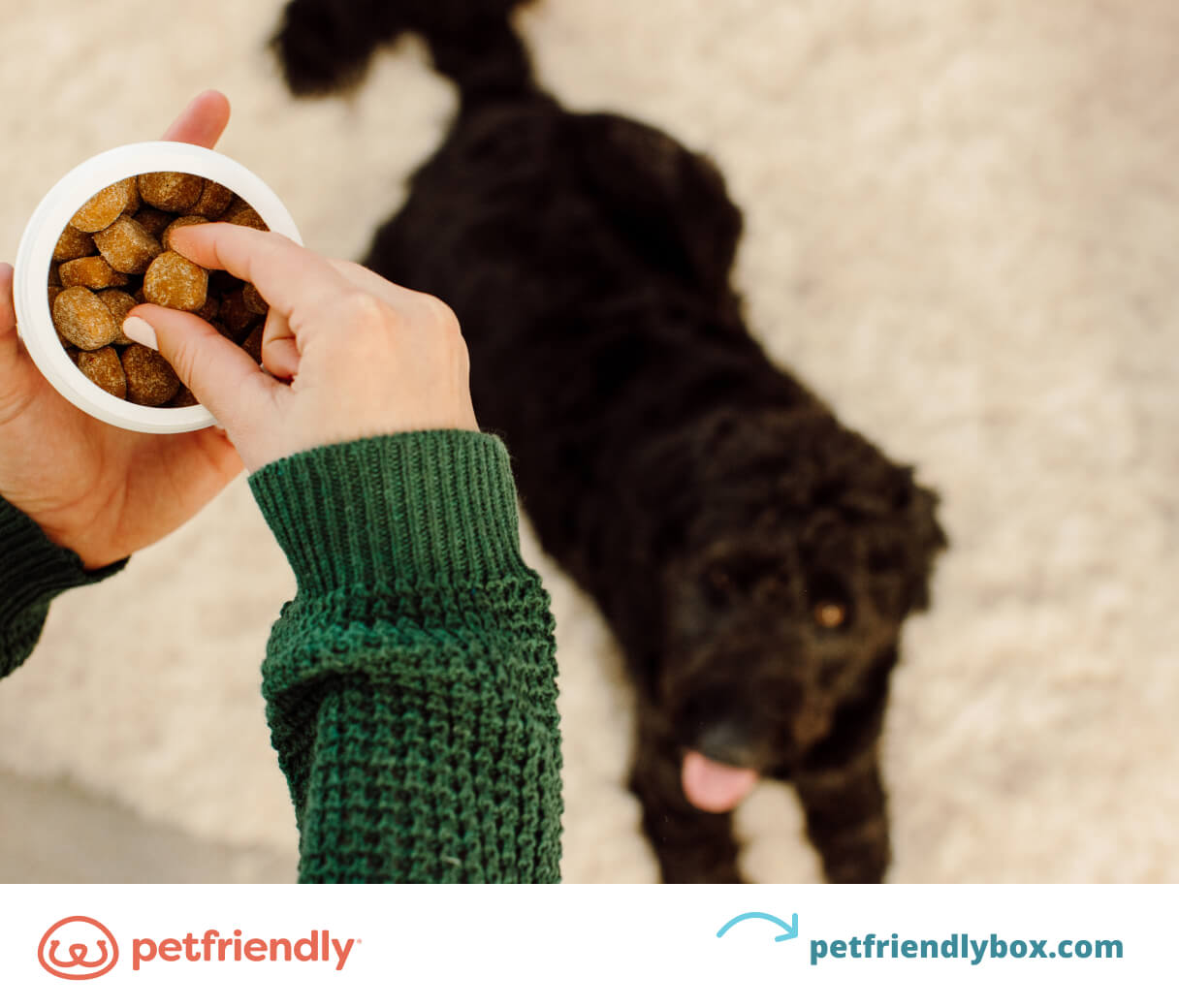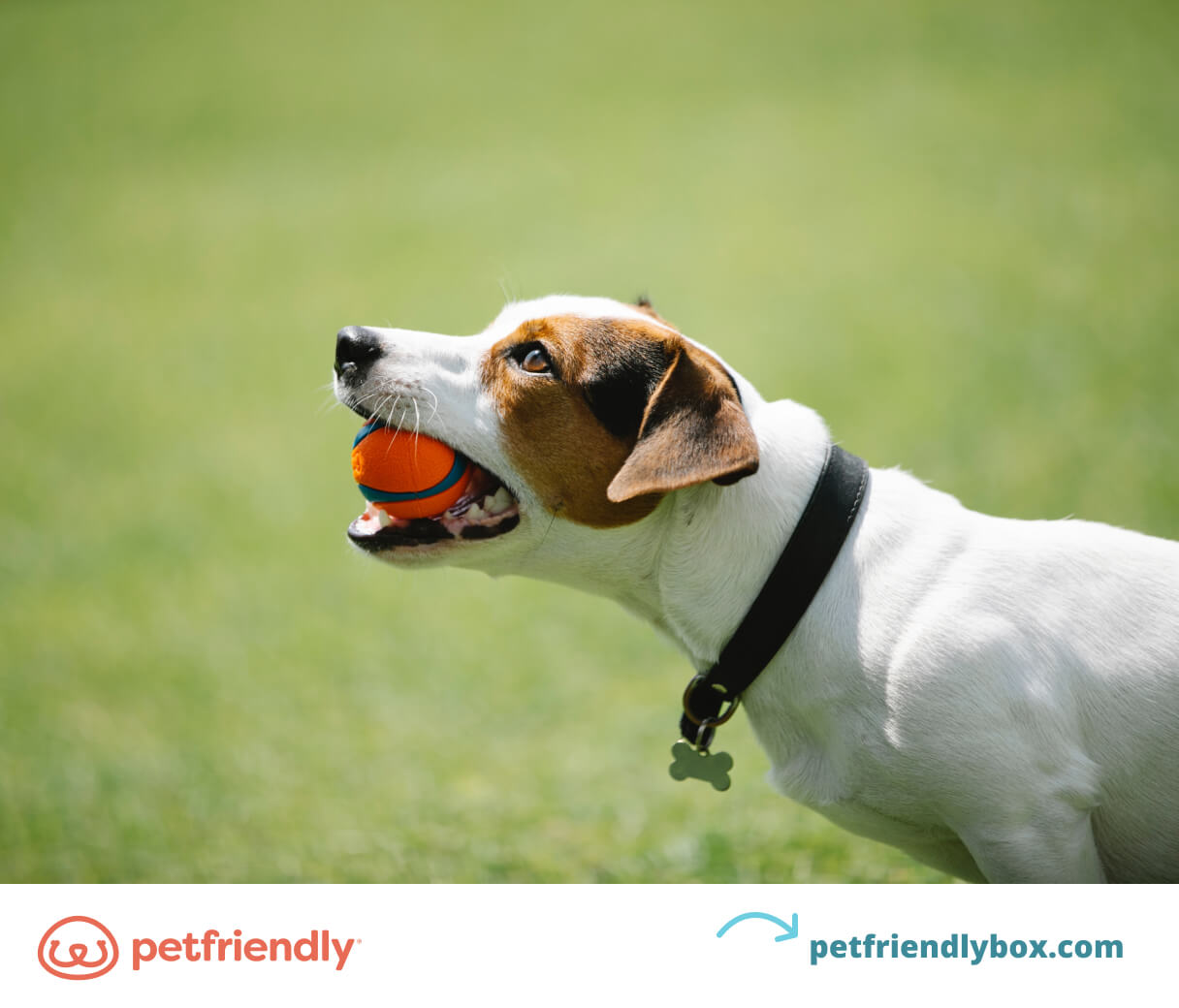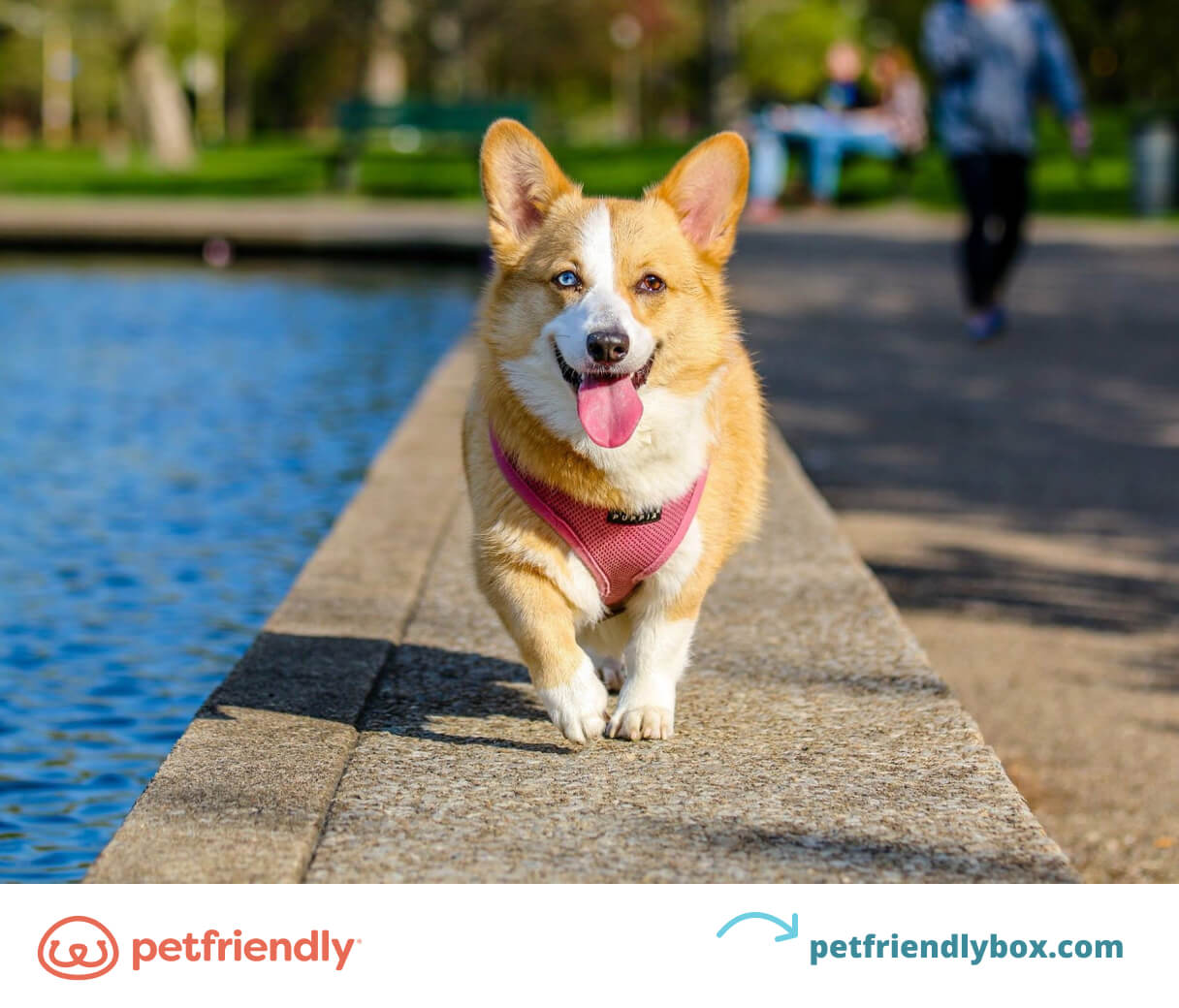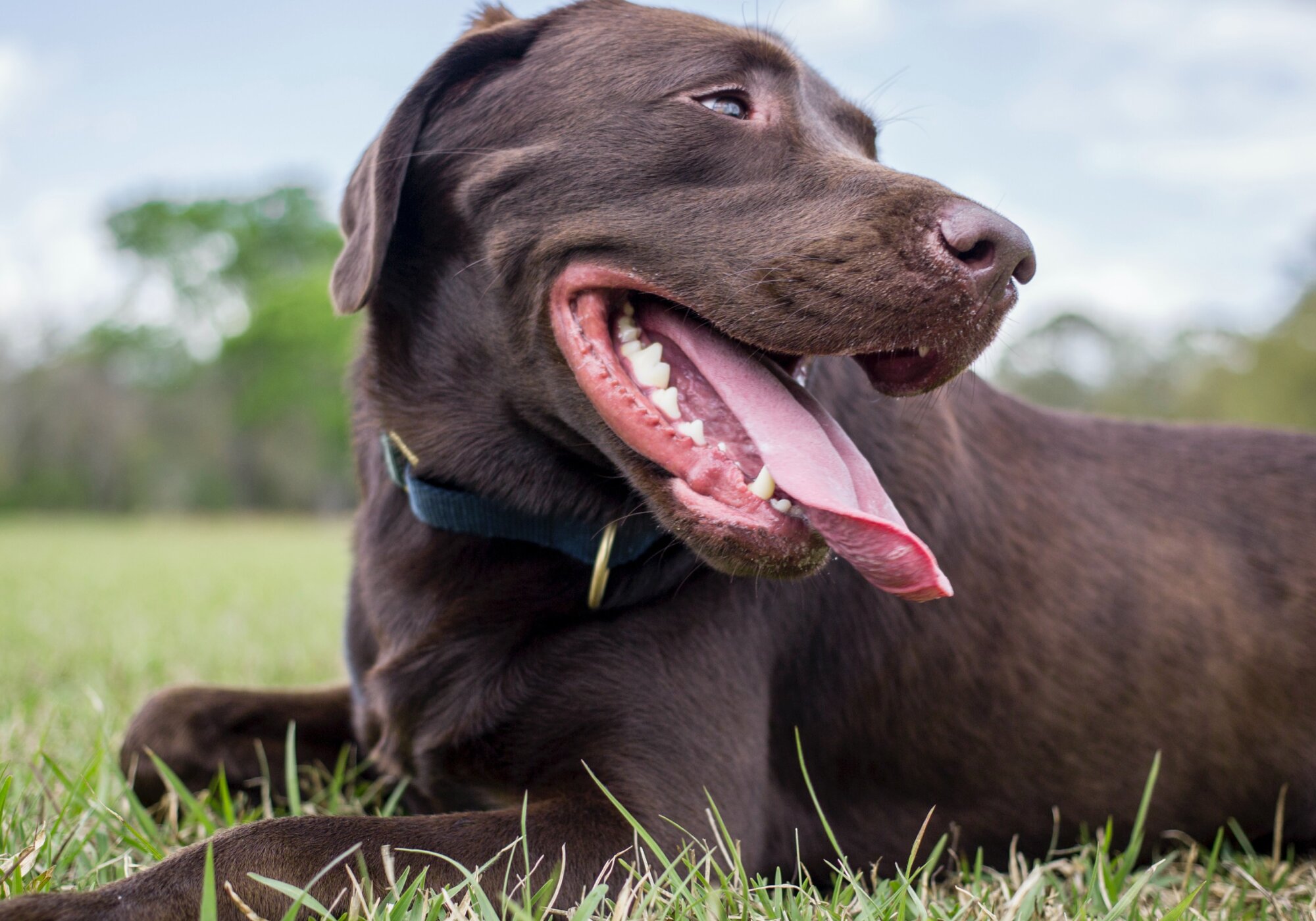Human probiotics have become all the rage for people. But did you know that your pet can benefit from probiotic supplements in their diet too?
From helping your dog digest their food to keeping their immune system strong, probiotics are a health aid for dogs with gastrointestinal issues, infections, and anxiety.
Keep reading to learn the basics of probiotics, and why you should consider adding them to your dog's diet.
What are dog probiotics

Probiotics are beneficial microorganisms that help your pet with essential body functions. They help your pet:
- Digest food
- Fight off potential pathogens
- Make nutrients and vitamins
- Build friendly bacteria
- Boost immune health
Dogs with a deficiency in probiotics are likely to suffer from diarrhea, nausea, vomiting, and other gastrointestinal (GI) conditions.
Because probiotics are live bacteria, dog owners should limit the supplement's exposure to temperature extremes and moisture. Prolonged exposure can kill the friendly bacteria in probiotics. This means that a damaged probiotic will not provide your pup with the same benefits as a healthy probiotic.
Probiotics are a type of health supplement that you can give your dog. You can also supplement your dog with a prebiotic to ensure the probiotics in your dog’s digestive system are replenished and long-lasting.
Prebiotics versus probiotics

Another term that you may know is prebiotics. But what is the difference between prebiotics and probiotics? And, should you give your pet both?
Prebiotics support your dog's overall health like probiotics. While probiotics are the actual good bacteria in your dog’s gut. Prebiotics boost and feed the probiotics.
Both prebiotics and probiotics can be given to your dog to maintain a healthy balance of bacteria.
Prebiotics are naturally occurring in ingredients and foods like:
- Mushrooms
- Chicory root
- Burdock root
- Dandelion greens
Prebiotics are most beneficial when paired with probiotics. Probiotics replenish good bacteria and prebiotics act as food for the bacteria. Supplement your pet with both a prebiotic and a probiotic for best results in their overall health.
Benefits of probiotics for dogs

Many dogs need help getting the best nutrients to stay happy and healthy just like humans. This is where probiotics come into play.
Here are 4 benefits of giving your dog a probiotic:
1. Probiotics improve your dog's digestive health.
If your pup suffers from diarrhea or other digestive issues, a probiotic can help. The beneficial bacteria protect your pet from viruses that could make their stomach upset.
Probiotics work to level the conditions in your dog's intestines by changing the acidity of the gastrointestinal tract. They also release short-chain fatty acids that help aid in digestion.
If your pup ingests harmful bacteria like salmonella, probiotics can help inhibit its growth. This maintains the balance of good and bad bacteria in your dog's gut.
2. Probiotics help skin issues and allergies.
Probiotics help build good bacteria in your dog's digestive tract. This can help reduce the symptoms associated with food and seasonal allergies like:
- Diarrhea
- Skin irritation and itching
- Sneezing and coughing
- Atopic dermatitis
Plus, if your pup has issues with coat quality, probiotics are a simple remedy. They help keep dogs' coats shiny and soft.
3. Probiotics help heal infections.
Dog probiotics work to release anti-inflammatory substances and relieve itchiness in dogs. Skin infections and allergies are often accompanied by ear infections. So, a probiotic can be helpful in relieving both of these issues.
If your pup is prescribed antibiotic treatment for an infection, it may affect your dog's gut health. This is because antibiotics alter your pet's gut microbiome. Giving your dog probiotics can help restore their healthy gut bacteria quickly to recover from taking antibiotics.
4. Probiotics build your dog's immune system.
Probiotics have immune-boosting features. This helps build many dogs' immunity against allergens and improves their overall health.
Probiotics for dogs work to achieve a desirable intestinal microbial balance. This means they balance the amount of good and bad bacteria in your pet’s gut.
Your pet's gastrointestinal system makes up the majority of their immune system. So, it's important to keep your pet's gut healthy and protected.
If your pet suffers from any of these conditions, they may benefit from a probiotic treatment.
- Allergies
- Anxiety
- Bad breath
- Constipation
- Diarrhea
- Immune disorders
- Liver disease
- Obesity
- Urinary tract infections
If your pet has underlying conditions like intestinal parasites, discuss treatment options with your vet. A probiotic can be helpful for recovery, but they are not meant to completely cure all conditions.
5. Probiotics keep your pet happy.
There are special probiotics for dogs that have the ability to improve your pet's mood and limit symptoms of anxiety. These products are known as behavioral probiotics.
If you know you have a stressful event coming up like a move or vacation, supplement your pup with probiotics ahead of time.
Sources of probiotics for dogs

Your dog's gut microbiome is made up of microorganisms that live in their GI tract. Dogs have a different gut microbiome than humans. So, it's important to give your dog a probiotic designed for dogs, rather than a human probiotic.
It's relatively simple to source probiotics for your pet. Dog owners can purchase probiotics at any pet store or through online retailers. There are also natural sources of probiotics that you can give your dog to boost their health.
Here are some sources of probiotics for dogs:
Yogurt and other foods
If you or your pup have ever eaten yogurt with live cultures, it is possible that it contained a probiotic. Other human foods like raw, unpasteurized sauerkraut and fermented vegetables have live bacteria that may benefit some dogs with health problems.
If you decide to give your pet probiotic treatment through plain yogurt, be sure that the yogurt does not have artificial sweeteners or xylitol. Xylitol is especially toxic to dogs.
Probiotic dog food
Boosting your dog's probiotic intake daily through dog foods can support their GI tract and provide other health benefits.
Probiotic dog foods are a convenient way to aid in digestion and overall health. There are many different types of probiotic dog foods. So, talk to your vet about what food option is right for your puppy.
Supplements
Probiotic supplements usually come in chewable or powder forms and can be added to your dog's food. Supplements are an easy way to add a probiotic to your dog's diet. But, be sure to talk with your vet and read the label to ensure they are getting the right dose every time.
Multivitamins
A multivitamin often contains probiotic blends that boost your pet's overall health. Multivitamins work to improve:
- Hip and joint support
- Skin and coat health
- Canine gut and digestive health
- Immunity and general health
Multivitamins have immune-boosting ingredients that help your dog live a healthy life. If you give your dog a multivitamin, be sure it contains a probiotic supplement blend and other dog-safe ingredients like:
But, multivitamins and dog probiotics can harm your dog if they contain ingredients that your dog is sensitive or allergic to. Be sure to check the label of your multivitamin before giving them to your pet.
A strong and protected immune system makes for a healthy dog. Keep your dog happy and healthy by providing them with the nutrients they need through probiotics.


